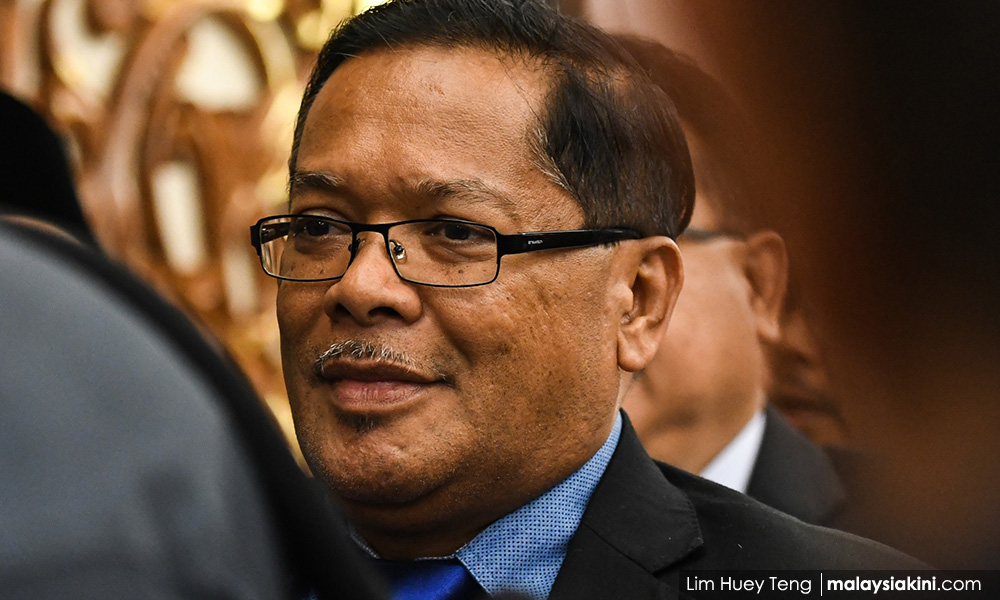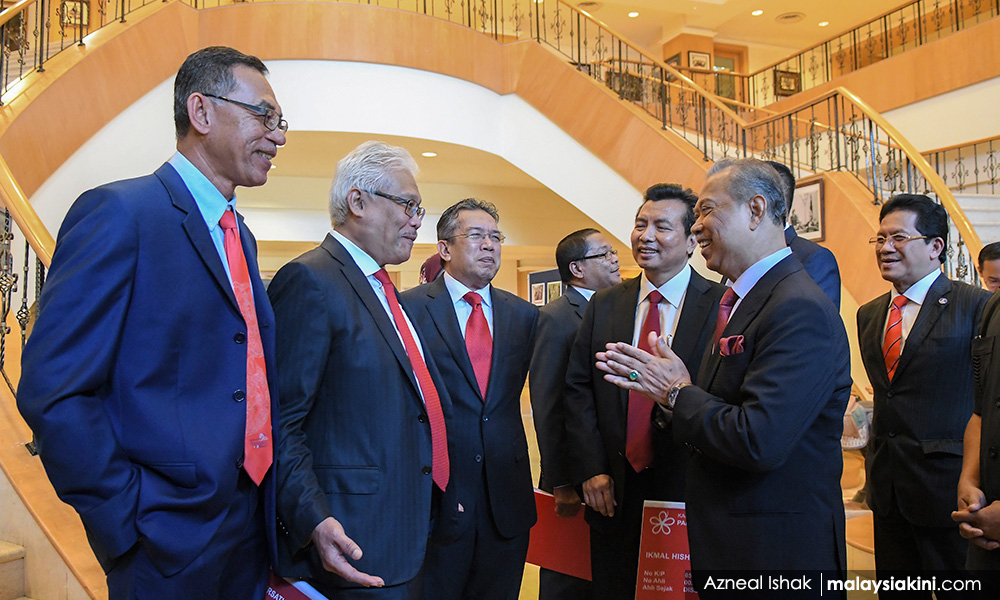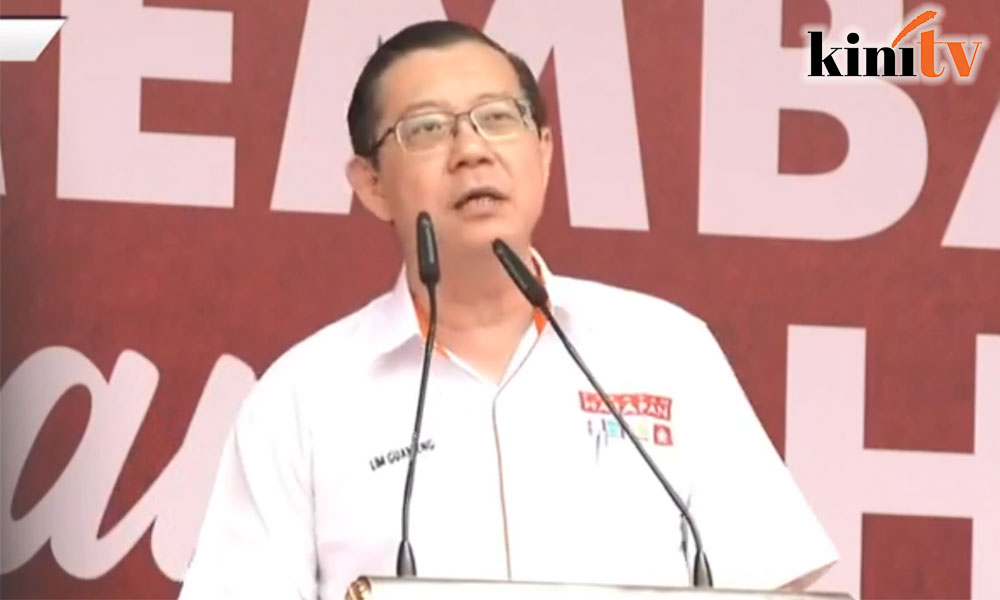
Published by Malaysiakini, images from Malaysiakini.
In December 2018, I said my piece about what the Harapan policy towards defectors (especially from Umno) should be.
I think those arguments still hold today – that Harapan should only accept crossovers from ex-BN politicians when they bring something to the table that others cannot, and truly add value.
We can ask for instance, would the recent addition of these seven Umno representatives help at all in the upcoming Semenyih by-election?
It may not be a stretch to say that the move may cost more non-Malay votes than it would gain Malay votes.
It is also important to assess and weigh whether these would-be defectors have changed in any way between then and now – whether they have ‘insaf dan bertaubat’ (repented and atoned).
This is important because if they still hold to the same value system, principles, and ways of conducting politics (or indeed, the business of politics), then we would be introducing the same rot into Harapan that destroyed BN.
The last time this was a controversy, there was much talk of a committee that was supposed to vet some of these crossovers.
If this committee was indeed established, it would be helpful if some record of their research, deliberation and assessments were made public – at least to some degree.
The absence of that transparency may lead some to wonder whether there were any assessments, deliberations, or perhaps even a committee at all; which in turn could lead to speculation that the powers that be merely waited a while for controversy to die down, before pressing ahead with ethically questionable decisions.
Transparent assessments needed
Again, I think the fair approach is to take each crossover on a case by case basis.
When the most recent seven Umno-elected representatives joined Bersatu, all the focus was placed on Shabudin Yahaya, and understandably so.
Before we get to him though, we may need to recognise the tendency to paint everyone with the same brush.
There were six other lawmakers involved in this crossover, and it may be fair to assess each of them on an individual basis, to ascertain whether or not their principles and integrity have evolved, and whether they truly add anything of value.

Prime Minister Mahathir Mohamed is not wrong when he says “It is what they are doing now that counts.”
The question is though: what, in fact, are they now? Surely, ‘a Bersatu supporter’ is not a sufficient or satisfactory answer that should grant one passage through the gates.
Of course, this question should have been answered by the abovementioned committee, and their findings should have been made public in some way.
In the meantime, the public and media should also independently conduct their own assessment.
Completely unacceptable views
Let us look at the prominent case of Shabudin Yahaya.
Reading his previous comments made me feel like my eyes were bleeding.
Here are some choice highlights, regarding how he feels rape victims marrying their rapists might be a good idea:
“Maybe with the marriage, (the man) can lead a different life that is better. And the wife who was raped, if she can get married she will not go through an uncertain future.
“At least she has a husband… this is a remedy to social problems,” said Shabudin.
He said that his experience as a Syariah Court judge has led him to believe that underage girls with “wild lifestyles” eventually had better lives after marrying good husbands.
He also refuted Siti Mariah’s argument that 12-year-old girls were too young to be wed.
“When we discuss 12- and 15 year-olds, we don’t see their physical bodies, because some children aged 12 or 15, their bodies are like 18-year-old women.
Shabudin, however, said it was unfair to condemn a person to be bad forever, as they may repent.
“Maybe the husband had raped her (his wife, prior to marriage), we (can’t) say that the husband will be a useless and evil person forever,” he said.
Has Shabudin repented?
Reading the last comment, one cannot help but wonder if Shabudin is talking about his own political career, having spent most of it committing or abetting political rape and exploitation.
Mahathir’s comment of “It’s what they are now” was in direct response to questions about Shabudin.
So what is Shabudin now? Does he stand by those comments?

If he does, I find myself agreeing for once with DAP Secretary General Lim Guan Eng in his assessment that Shabudin is a monster; certainly, the comments he made are monstrous.
I cannot imagine any father, whose daughter has been subject to the violent brutality, the violation, and the trauma of a rape, to think for even one second, that it would be anything remotely resembling a good idea to encourage the two to marry.
This is unimaginable – indeed, monstrous – cruelty.
Any man who still thinks so should have no place in Parliament, and certainly no place in Harapan. One wonders if he even has a place among sane and decent men and women.
International condemnation
Hopefully, the prime minister and Bersatu chairperson realises the gravity of his move and comments.
He risks being seen as out of touch and not cognisant of the far-reaching changes that have happened over the years and decades – seen most recently in the wake of the #MeToo movement.
Accepting Shabudin as a member of Bersatu, ‘luckily’ for Mahathir, is perhaps too small to make international news; but I wouldn’t be surprised if they pick up on it at some point.
Rest assured that if and when it happens, international condemnation will be swift, and it will be harsh.
Elsewhere in the world, entire careers have been ended for comments half as controversial as Shabudin. We are not in the male-dominated 80s any more.
If the Marzuki Yahya fake degree scandal can cause so much fallout and prolonged controversy, one can only imagine the fallout – both domestically and internationally – from the other son of Yahaya.
A different world
I cannot agree with everything my esteemed colleague P Gunasegaram says in his latest article.
His title and tone suggest an axe to grind and a grudge that may colour one’s objectivity. Not everything is about Mahathir, and not everything about Mahathir is about the kind of man he was then.
I believe a leopard can change his spots, and I think only a significantly biased observer would make the assessment that Mahathir is 100 percent the same man he used to be.
All that said, there is still space here for Mahathir to do better, and to be better cognisant of the world we live in today – a world that has changed since the first time he was PM.
Many of Mahathir’s actions are clearly informed by an understanding of these changes, but perhaps not all.
Most notably, it remains to be seen if Mahathir and his team truly understand today’s sensitivities, and the new dynamics of a global communications landscape driven by the internet and social media.
The Harapan Cold War
I must concede that certain points raised by Gunasegaram merit attention.
He posits some scenarios about changing numerical dynamics in Parliament, as more of these realignments occur.
Some of them seem to be rather extreme, exaggerated hypotheses, but Gunasegaram’s comments touch on a valid larger issue – the Harapan Cold War.
To date, most Harapan leaders have refrained from engaging in vigorous open warfare.
The undercurrents however, are quite plain for most to see.
Each time ex-BN MP joins one Harapan party or another, political operatives are bound to read into such moves nefarious motivations and attempts to leverage more power within Harapan.
Whether or not this is indeed the intention is almost irrelevant. As long as they are seen to be a threat, they are, practically ipso facto, a threat.
Bersatu’s entry into Sabah is also likely to be seen the same way.
There’s no space here to go into all the dynamics of the unfolding Harapan Cold War, but suffice it to say for now, this is obviously one more consideration in accepting these seven Umno lawmakers.
The Cold War was defined to a considerable degree by an arms race. The more Harapan parties make moves that look like attempts to find stronger political footing within the coalition, the more unstable the coalition is likely to be.
Perhaps the coalition should look to strengthen its existing cooperation, rather than continuously trying to redefine the terms of reference.
Nathaniel Tan is Director of Media & Communications at EMIR Research, an independent think-tank focused on strategic policy recommendations based upon rigorous research.

